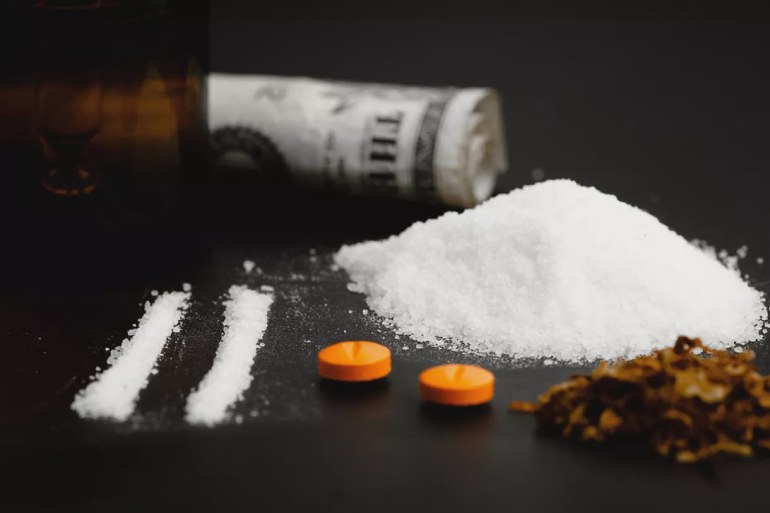A Hobart man has pleaded guilty in federal court to selling illegal drugs nationwide over the “dark web.”
Christopher D. Bania, 26, faces up to 20 years in prison and a $1 million fine. He also will forfeit about $1.5 million worth of cryptocurrency and $85,000 in cash and could serve extended supervision for the rest of his life. He is to be sentenced Dec. 9 at U.S. District Court in Green Bay.
He pleaded guilty to a charge of possession of controlled substances with intent to sell it. He originally faced up to 80 years in prison for a variety of charges that were dropped in exchange for the plea.
Bania sold ecstasy, cocaine, LSD, marijuana and other drugs on dark web marketplaces, including Dream Market, Zion, Wall Street, Trade Route and two that police shut down this summer, Alpha Bay and Hansa, according to court records. Sales took place between February 2016 and March 5 this year, when he was arrested.
The dark web is a part of the internet that is unreachable by traditional search engines, according to the Department of Justice. Accessing the site requires special software, and use conceals the internet protocol addresses of the computers using the network, thereby making it almost anonymous.
Original Statement By USAO at the time of his arrest
United States Attorney Matthew D. Krueger for the Eastern District of Wisconsin announced that on April 2, 2019, a federal indictment was issued against Christopher D. Bania (age: 26) of Hobart, Wisconsin.
Bania was charged with possession with the intent to distribute controlled substances, maintaining a residence for the purpose of drug distribution, unlawful importation of controlled substances into the United States, and money laundering related to activity occurring between February of 2016 and continuing until his arrest on March 5, 2019.
According to court documents, Bania sold narcotics that included MDMA (“Ecstacy”), cocaine, DMT, ketamine, LSD, methamphetamine, heroin, MDA, cocaine base (“crack cocaine”), methaqualone, marijuana, and a variety of other controlled substances. To make his sales, Bania utilized dark web marketplaces, including Dream Market, Zion, Wall Street, Hansa, Trade Route, and Alpha Bay. Alpha Bay and Hansa were shut down by law enforcement in July of 2017.
The dark web is a part of the Internet that is unreachable by traditional search engines and web browsers. Websites on the dark web have complex web addresses generated by a computer algorithm and must be accessed using special software that is capable of connecting to “The Onion Router” network, or “TOR” for short. The TOR network is encrypted and routes internet traffic dynamically through a series of computers around the world, concealing the true Internet Protocol (IP) addresses of the computers accessing the network and thereby making internet use virtually anonymous. This perceived anonymity has led to a proliferation of criminal activity on dark web marketplaces, where users can find vendors, like Bania, offering illegal goods and services for sale.
“Drug traffickers should take note: the internet is not free from law enforcement,” said U.S. Attorney Krueger. “This case reflects an extraordinary collaboration between federal, state, and local agencies, which are committed to stopping all forms of drug trafficking in our communities.”
“Whether you are selling drugs on a street corner or selling them from a dark web vendor site, the Drug Enforcement Administration will continue investigating drug traffickers wherever they operate,” said Green Bay DEA Resident-Agent-in-Charge Christopher Hoyt. “This arrest proves that drug trafficking via the dark web is not immune from detection and prosecution.”
This case was a joint investigation of the U.S. Customs and Border Patrol, U.S. Postal Inspection Service, U.S. Drug Enforcement Administration, Wisconsin Department of Justice – Division of Criminal Investigation, the Brown County Drug Task Force, the Hobart/Lawrence Police Department, and the Oneida Police Department. It will be prosecuted by Assistant United States Attorneys Scott J. Campbell, Benjamin W. Proctor, and Daniel R. Humble.
If convicted on all charges, Bania faces up to 80 years in federal prison and over $4 million in fines.
An indictment is only a charge and is not evidence of guilt. The defendant is presumed innocent and is entitled to a fair trial at which the government must prove him guilty beyond a reasonable doubt.


